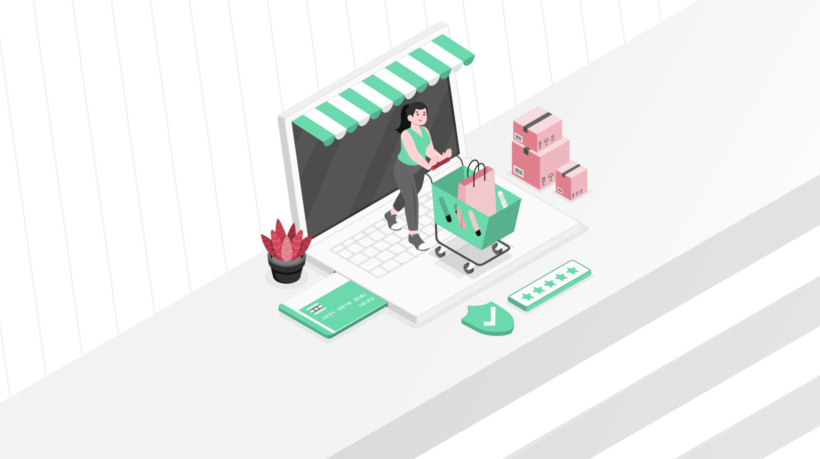How eLearning Benefits The Retail Industry
The retail industry isn’t very different from your usual corporate organization. In fact, eLearning can offer massive benefits to the retail sector in terms of employee training. The only reason why eLearning isn’t popular in the retail sector is that eLearning is thought to be somewhat restricted to corporate organizations, but in fact, it is not so. eLearning isn’t just an employee development tool, it is an employee training tool like no other (yet). The retail industry requires eLearning to train its employees in various skills and aspects which are necessary for the industry’s growth. We’ll discuss what skills and aspects are those, but first, we need to understand the problems plaguing the retail industry. Then we’ll move on to explaining how eLearning can help solve them.
Problems Faced By The Retail Industry
Training in the retail industry, even your traditional classroom learning, isn’t very commonplace. Barring the giant retail chains which function exactly like corporate organizations, L&D (Learning and Development) hasn’t really made its mark in this industry. The reasons for this are restricted training budgets, dispersed workforce, high turnover rates and the like. However, all of these problems can be easily solved via eLearning. Like always, there’s a way if retail stores and organizations are ready to work towards it. As for the benefits, they are what this article is all about! Let’s have a closer look at them.
Benefits Of eLearning In The Retail Industry
1. Enhanced Customer Experience
The retail industry has suffered a massive blow since the arrival of online retail channels. As a result, retail stores have to work extra-hard to woo customers. This means that sales representatives at stores must be confident, and must be able to engage and delight customers. This can be accomplished using eLearning modules that focus on customer experience, educating employees on how to engage with customers, how to better answer their queries, improve customer’s confidence and loyalty in the brand, which will eventually increase sales.
2. Updated Product Knowledge
How can sales reps be expected to convince a customer to buy a product when they don’t have a thorough knowledge of their product themselves? eLearning provides a much better opportunity for retail employees to stay up-to-date about current promotions and brush up on their product knowledge than verbal training. When the staff can confidently answer any customer queries related to a product, it increases the chances of customers actually buying those products.
3. It Is Cost-Effective
Of course, no training will always be more cost-effective than eLearning, but then again, don’t expect your sales to grow or your business to improve without any efforts. eLearning is a great investment, one with a massive ROI. eLearning can be delivered directly to retail employees on their smartphones, wherever they might be. They can also complete their eLearning courses whenever they like. When compared with traditional Instructor-Led Training, you save up on the regular payments you would have to make to the instructor. eLearning is a one-time investment.
4. Improved Employee Retention
The retail industry suffers from one of the highest employee turnover rates than any other industry. The reason for this may be countless, but all of those stem from a lack of employee engagement. When employees are not engaged in the job, they do not like their job. It takes time for an employee to gain experience and become a competent, well-trained employee. That cannot happen if the employees keep leaving. eLearning can help retain employees by providing them the necessary knowledge and skills they need to fulfill their job responsibilities. In addition to that, it educates them on the benefits of sticking with a job or organization for long, as well as the drawbacks of leaving a job or organization too soon. Teach them the value of the brand they work with.
5. Continuous Support
eLearning can offer immediate support to employees on their smartphones at any point of need. For example, if a retail employee is not well aware of the skills of the product then, he/she can simply access an eLearning video then and there itself. This reinforces learning, as well as boosting customer experience.
If you’re looking to transition into eLearning, or are interested in trying out employee training via eLearning for the first time, don’t wait. Get eLearning now, and reap its benefits. You’ll be thankful to yourself for that decision.










